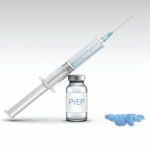Faced with rising gas prices, tripling food costs and millions of foreclosed homes, many Americans are concerned about the economy. For those living with HIV, who must also shell out for meds, deductibles, co-pays and health insurance premiums, the impact of a troubled economy can be even greater. “I can’t pay for my $500 a month meds—and I work in the health care field,” says Victor Evans, 47, who was diagnosed in 1991. “I’m over $100,000 in debt for my student loans. [Because of the rising cost of] gas and food, I had to move out of my own apartment and live with my parents.”
Financial stress can damage more than our bank accounts. Worrying about money can harm our mental and physical health. Evans says he felt “depressed and unbelievably anxious” because of his money situation. A recent survey by The Associated Press and AOL Health shows that 27 percent of people who reported overwhelming debt also suffered from ulcers or digestive tract problems. Additionally, 44 percent of those in debt had migraines, 6 percent reported heart attacks, and 29 percent experienced severe anxiety.
The good news is that a variety of simple steps can lessen your stress and help get you out of debt. The following Do’s and Don’ts can help lower your financial anxiety.
Do: Exercise regularly
Frequent physical activity relieves stress, improves blood flow to your brain and strengthens the heart. It can also help you sleep better. Experts suggest being active a minimum of four days a week for at least 30 minutes. Yoga is a great exercise for settling the mind and relieving stress. Not to mention, it can raise CD4 counts. When you feel strong, calm and powerful, you will be more in control, including how you earn—and wield—your money.
Do: Make a weekly budget—and stick to it
Decide how much you can afford to spend each week and respect your budget. Saving money doesn’t have to mean staying home alone. There are many free or inexpensive options for entertainment, such as picnics in the park, street fairs, board games, cards and movie rentals.
Don’t: Overspend on unhealthy habits
Expensive habits such as smoking and drinking damage your health and waste your hard-earned cash. Although quitting isn’t easy, in the end, it’ll save you money—and may-be even your life. Spend the extra cash on healthier treats (like joining a cool gym), or squirrel it away in a savings account to amass peace of mind.
Do: Treat yourself for being frugal
Financial debt is difficult to overcome, but there’s no better motivation than setting goals and then rewarding yourself once they’re accomplished. One example: Eat dinner at home all week, then indulge yourself with a special meal out on the weekend.
Resources to help fatten up your wallet
U.S. Financial Literacy and Education Commission
This free federal program teaches you financial basics such as balancing your checkbook, budgeting and planning for taxes. Download the free tool kit to get started at mymoney.gov.
AIDS Drug Assistance Program (ADAP)
ADAP provides free HIV/AIDS medications (and also, in some states, meds for hepatitis C) to low-income HIV-positive people. Find out whether you qualify for ADAP help at atdn.org.
POZ’s AIDS Services Directory
Many local AIDS service organizations offer programs that teach money management. Visit directory.poz.com to find a program in your area.
No Money, Mo’ Problems?
Not necessarily. How to keep financial woes from draining your health.






Comments
Comments